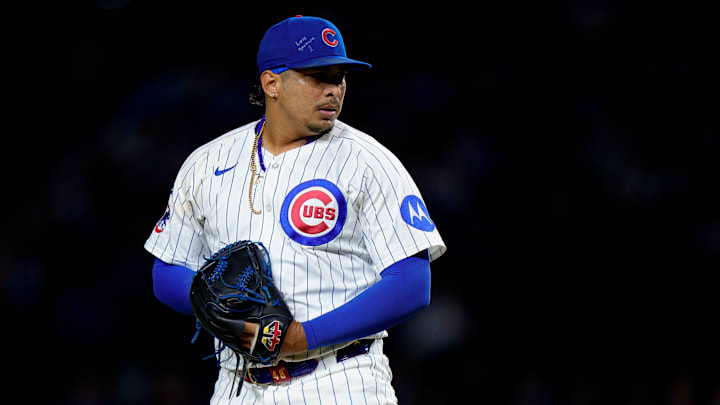No matter what, this Chicago Cubs season was going to serve as a referendum on Jed Hoyer's leadership. Sure, he's not going anywhere no matter what happens in the team's looming Wild Card showdown with the San Diego Padres — and it's here that we'll once again pause to reflect on just how odd the timing of that contract extension was — but this was supposed to be the year where patient and prudent roster-building finally paid off. The farm system is bearing fruit; Kyle Tucker is here (possibly for a limited time only). If not now, when?
The fact that the Cubs draw this particular matchup to start their postseason, though, just makes thing even juicier. Because really: Could you come up with more of an anti-Hoyer than his counterpart in this series, Padres president AJ Preller? Where Hoyer builds brick-by-brick, valuing cost-controlled talent above all else, Preller is out here flipping prospects like they're set to expire. Where Hoyer is loath to ever go beyond his upper limit in free agency, Preller doesn't really care how much it costs as long as he gets the player he wants.
They're diametrically opposed executives that have traveled radically different paths to get to Game 1 on Tuesday. And unfortunately for the Cubs, the difference between the two might go a long way toward deciding who survives this series.
For more news and rumors, check out MLB Insider Robert Murray’s work on The Baseball Insiders podcast, subscribe to The Moonshot, our weekly MLB newsletter, and join the discord to get the inside scoop during the MLB season.
Jed Hoyer's trade deadline has left the Cubs with clear flaws entering October
We know the Cubs are going to hit. Pete Crow-Armstrong has come crashing back to Earth, and Kyle Tucker has hit a rocky (to put it kindly) second half of the season, but this lineup remains as deep and dangerous as just about any in the National League.
What we don't know, however, is whether Chicago has enough pitching to support their bats. The rotation is full of question marks, with Justin Steele's injury and Shota Imanaga's recent slump forcing the team to lean a bit too heavily on star rookie Cade Horton. The bullpen, meanwhile, is lacking the sort of top-end stuff you like to see in high-leverage situations at this time of year.
What's particularly infuriating is that these are the same concerns we had about this team months ago. And yet, given a chance (and more than enough prospect capital) to address them at the trade deadline, Hoyer once again chose to keep his powder dry, acquiring pieces on the margins like Nationals righty Michael Soroka and middle reliever Andrew Kittredge. Soroka almost immediately got hurt — hardly unexpected given his history — and while Kittredge has been solid enough, he doesn't profile as the sort of bat-misser you want in the biggest moments.
Of course, the Padres are far from a perfect team themselves; there's a reason the Cubs have home-field advantage in this series, after all. But they are a team with [Liam Neeson voice] a very particular set of skills, skills that should play way up now that we've reached October.
Padres are uniquely well-suited to take advantage thanks to AJ Preller
San Diego also doesn't have the sturdiest starting rotation, with Nick Pivetta taking the ball for Game 1 and a whole bunch of question marks beyond that. Given the offenses at play in this series, we could be getting into the bullpens early and often.
And if that does in fact prove to be the case ... well, good luck going arm-for-arm with the Padres. While Chicago is going to try and make it work with guys like Kittredge, Daniel Palencia, Brad Keller and Caleb Thielbar, San Diego can trot out Jeremiah Estrada, Adrian Morejon and Suarez as a bridge to star closer Mason Miller — himself a former starter with the ability to go multiple innings if needed.
I know which one of those I feel more confident in entering this series. Maybe the Cubs will simply hit enough that none of it matters; I'd certainly take their lineup over San Diego's in a vacuum, and if they get hot, they can beat anybody in a short series. But one of these teams moved quickly and aggressively to position themselves for the postseason, and the other largely stood pat. That could become very relevant very quickly this week.
